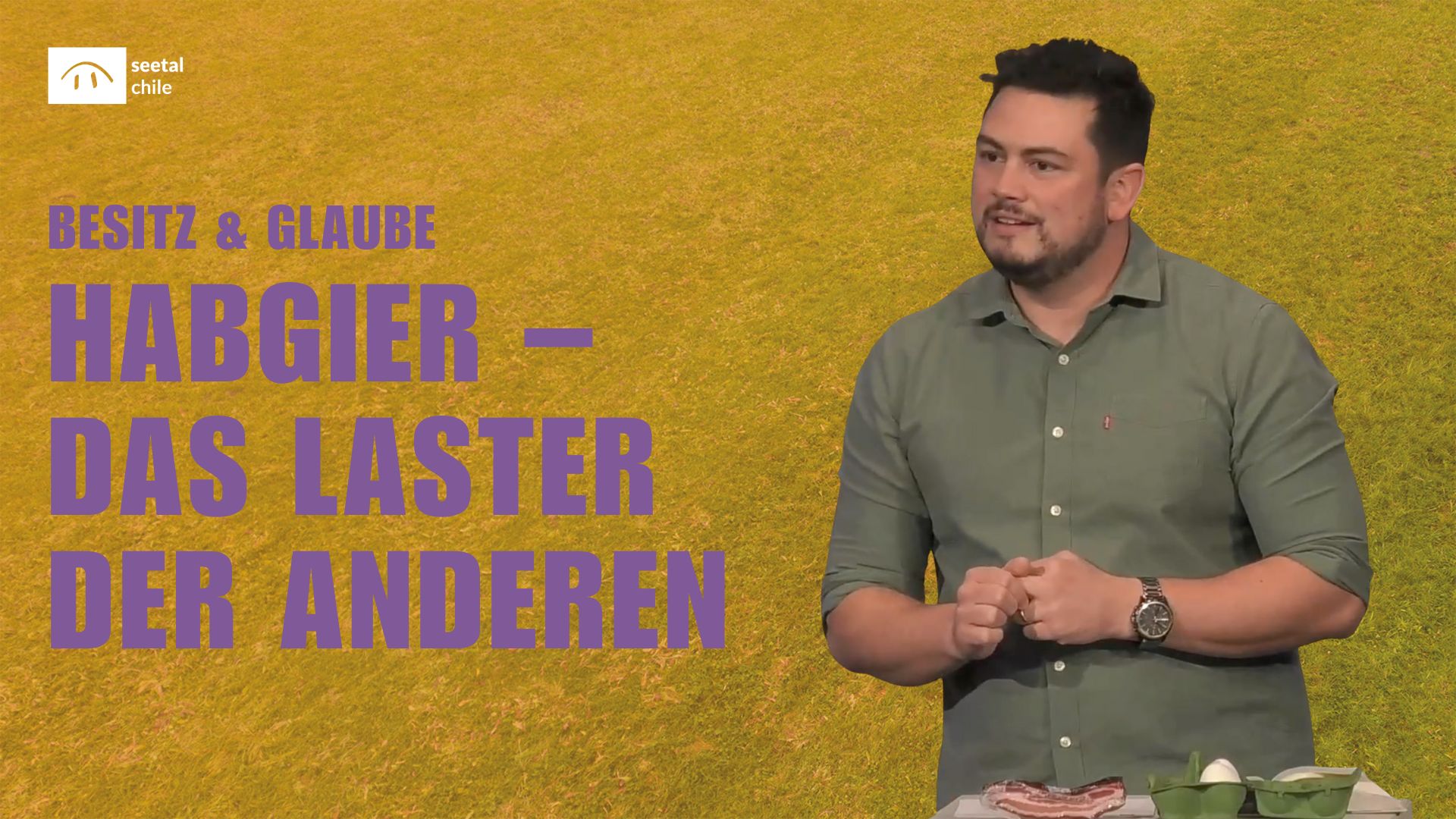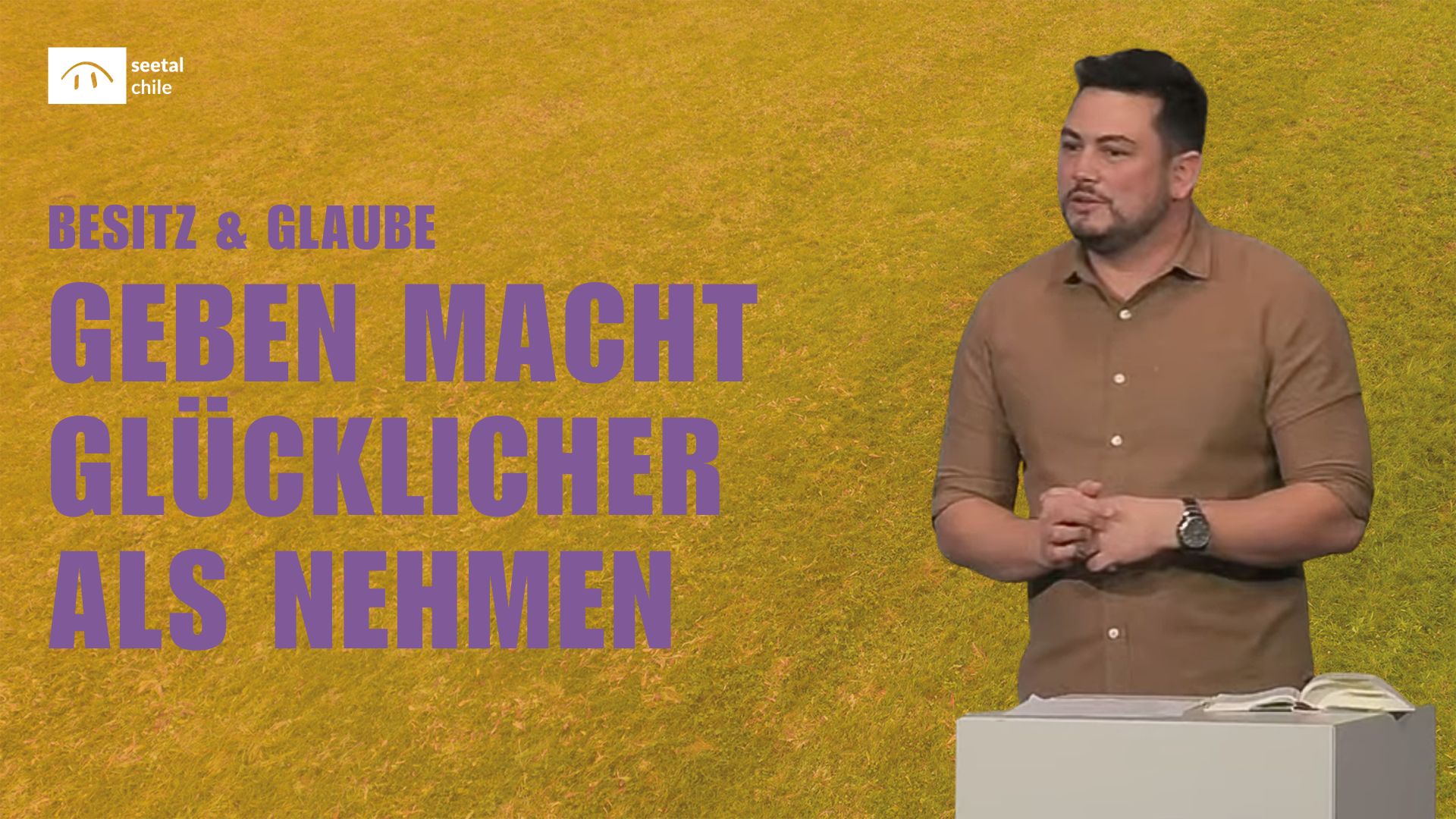Good Friday – My God, my God, why have you forsaken me?
Series: EIFACH muetig – with Jesus as a role model | Bible text: Psalm 88; Matthew 27:33–50
We have a natural tendency, especially as followers of Jesus, to comfort ourselves over grief and pain and to look to a hopeful future. But on Good Friday in particular, we want to make room for pain together with Jesus and persevere in lamentation and grief together with the psalmist of Psalm 88.
A few years ago, I did a «Lord of the Rings» marathon with my sister-in-law. With the extended version, of course. That’s a good 12 hours in front of the TV. We started at eleven in the morning and prepared all the snacks, drinks etc. so that we only had the shortest possible interruptions for toilet breaks and putting pizzas in the oven. I hope I’m not giving too much away for anyone who still has a gap in their education at this point when I say that the films and the book are ultimately about the destruction of a ring to prevent the dark from gaining power. The whole thing is punctuated with epic battles and touching stories of friendship. So by 11 o’clock at night, we were pretty tired and full and ready for the grand finale. The last DVD with the final 30 minutes was still to come. We eagerly await Frodo saving everyone, but the unbelievable happens. The last DVD is broken. Yes, I only found out years later how the story ends!
If we don’t know the end
For those who are more familiar with the Bible: It’s as if we start reading the New Testament and stop at Matthew 27, after Jesus has died on the cross. Sometimes it might even do us good to pause there and not jump straight to the Easter events, but more on that later. Personally, I could well imagine that Jews also felt a similar tension when they read Psalm 88. There are several psalms of lament in the Psalms, i.e. psalms in which the psalmist pours out his heart to God and laments. All these psalms have a similar structure. They begin in lament and end in praise or in statements about God’s sovereignty, grace and faithfulness. At least almost all of them. Psalm 88 is somewhat out of line. On the one hand, I find it astonishing that only one psalm perseveres with lament. On the other hand, it reflects the urge we have to look beyond the pain and turn our gaze to a hopefully better future. Looking on the bright side is not a bad thing in itself. Nevertheless, it is not always appropriate. On the one hand, for the simple reason that we simply don’t know whether everything will be okay on this side of eternity. On the other hand, we need time to process, especially in difficult situations or after heavy blows of fate. We need the space in which grief is simply allowed to be. As «good Christians», we have the feeling that when we talk about our grief and our pain, we also have to emphasise that we already know that God has everything under control, already knows what he is doing and that the pain will surely be good for something in the end. It’s wonderful if you really feel this hope at that moment, but it’s a shame if it’s just a premature consolation that trivialises the situation and only causes more pain. Whether that’s with yourself or how you treat others. I met my husband when I was almost 26. That’s not that old, but for me it meant an extremely long wait. All my friends around me fell in love, got engaged and married and I had wanted a family so much since I was little and hoped to become a mum young. Do you know how much it helped me when happily married people said things like «You’ll definitely find Mr Right!» or «It’s worth the wait, believe me!»? Nothing! It didn’t help at all. It only left me with more pain.
The way of Jesus
Jesus chooses a completely different path. This becomes particularly clear in John 11, when Jesus is travelling with his disciples and receives the news that Lazarus is very ill. Instead of going straight to him, Jesus waits. When he sets off after three days and arrives in Bethany, where Lazarus lived with his sisters (also friends of Jesus), Lazarus is already dead. It is clear from the context that Jesus knows from the beginning that he will raise Lazarus from the dead and towards the end of the chapter we read that this has come true. But I don’t want to go into that in more detail here. We want to look at how the people reacted and how Jesus reacted. We read in verses 18 and 19 «Bethany was only a few kilometres from Jerusalem, and many people had come to offer their condolences to Martha and Mary and to comfort them over the loss of their brother.» (John 11:18–19 NLB). Actually, that doesn’t sound too bad. However, it should be noted that in Jewish culture, it was simply a matter of going to the mourning family and comforting them, similar to today. The distance mentioned in the original text is not three kilometres. It is probably also no coincidence that the Bible states that the mourning Jews only travelled half an hour on foot. It stands in contrast to the way Jesus acts. «When Jesus saw Mary weeping and the people mourning with her, he was filled with anger and pain.«Where have you laid him?» he asked. They replied, «Lord, come and see. Then Jesus wept.» (John 11:33–35 NLB). Jesus does not try to comfort them over their loss like the other Jews. Nor does he raise Lazarus directly from the dead. He mourns with Mary. Jesus is moved by her pain and weeps! How presumptuous is it of us then to always want to comfort over grief and pain all too quickly? Even if it is sometimes strange for us and we would rather celebrate Easter than mourn on Good Friday, mourning and pain are allowed to have their place. After the sermon, we will hear Psalm 88 as a song by Tanja. At this point, I would like to emphasise three things that we can learn from this psalm. Firstly, probably the most important point: the psalmist is angry and disappointed with God and yet God is the one to whom he turns. And in the story of Lazarus, Martha and Mary also run to Jesus, albeit initially with reproaches. It is perhaps not nice when your own child reproaches you or shouts angrily at you. But it is even more difficult when the child withdraws and no longer speaks to you. I believe God wants us so much to come to him with our anger and resentment and not turn away from him in the dark times. Secondly, the psalmist gives God his unfiltered opinion. We don’t know exactly what his circumstances are, but we can guess that he is probably exaggerating a little when he says in verse 4, for example «Because my life consists of pain and suffering, I am close to death.» (Psalm 88:4 NLB). Even clearer, however, is the sarcasm towards God. «What good are your miracles to the dead? Do they rise up and praise you?Do they proclaim your mercy in the grave, is your faithfulness praised among the dead?Can the darkness tell of your miracles, or is your righteousness praised in the land of oblivion?» (Psalm 88:1–13 NLB). Obviously, however, this does not seem to bother God any further. He tolerates the inappropriate but honest disclosure of the psalmist’s feelings. Again: better you come to God with an inappropriate complaint than you turn away from him. Thirdly, as already mentioned, the psalm does not culminate in praise or in a declaration of God’s sovereignty. In the last verse we read «You have taken away my friends and relatives; all I have left now is darkness.» (Psalm 88:19 NLB). I would argue that this is where our deepest pain usually culminates.
My God, my God, why have you forsaken me?
And I would like to end on this point. Whether it is the loss of a loved one, an unfulfilled longing, a mental or physical illness, in the end it is the greatest pain to feel so incredibly alone. You feel misunderstood by people and abandoned by God. So often we think that God cannot understand this pain. Jesus suffered a lot of pain and suffering, but he can’t really understand how you feel and how lonely you are. That plunges you even deeper into this loneliness. Where do I find myself in free fall when not even God understands the pain? But I believe that in the story of Good Friday we find hope that Jesus can fully empathise with precisely this deepest pain of loneliness, this pain of feeling abandoned by people and by God. He cries out from the bottom of his heart before he dies: «Eli, Eli, lama asabtani? – My God, my God, why have you forsaken me?». It may be that today it is your turn to admit to yourself that you are allowed to feel the pain you are feeling right now and that you do not have to comfort yourself cheaply and hastily. Perhaps you are doing very well at the moment, but you have someone around you who doesn’t need comforting words right now, but someone who can cry with you and allow you to grieve. What is certainly important on this day, however, is that we do not look ahead to Easter, but that we leave room for the pain of Good Friday together with Jesus. For this reason, I would like to read excerpts from the crucifixion of Jesus here.
«Then they went out to a place called Golgotha, that is, the place of the skull.The soldiers gave him (Jesus) wine mixed with bitter gall, but when he tasted it, he refused to drink it. After they had nailed him to the cross, the soldiers threw dice for his clothes. Then they sat around the cross and kept watch. A plaque was placed over his head, on which was written what he was accused of: «This is Jesus, the King of the Jews.[…] The people who passed by insulted and mocked him: «So! So you can destroy the temple and rebuild it in three days? Well, if you are the Son of God, why don’t you save yourself and come down from the cross? The chief priests, scribes and elders also mocked Jesus. «He has helped others,» they jeered, «but he can’t help himself! If he really is the King of Israel, then let him come down from the cross. Then we will believe in him! He trusted God – now let God show that he stands by him by sparing him! After all, he claimed: «I am the Son of God». […] At midday it suddenly became dark throughout the land – until three o’clock. Around three o’clock, Jesus cried out in a loud voice: «Eli, Eli, lama asabtani?», which means: «My God, my God, why have you forsaken me? […] Then Jesus cried out once more and died.» (Matthew 27:33–50 NLB).




